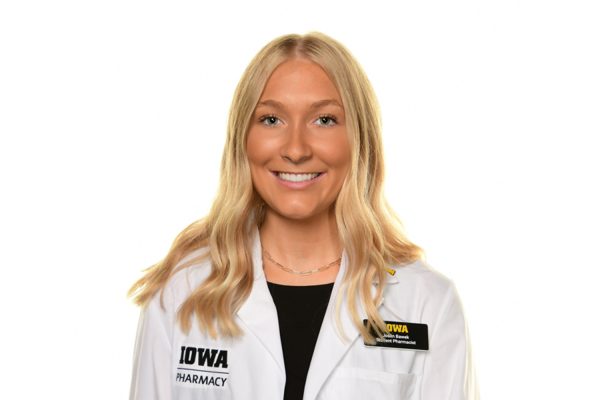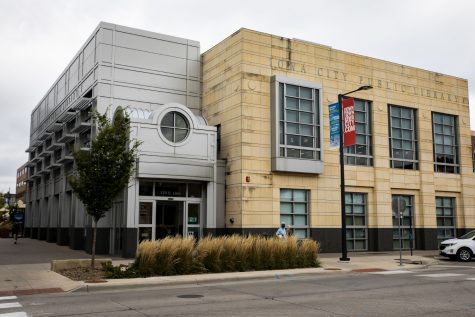Guest Opinion: Killing Medicaid expansion kills patients
FILE – In this file photo, the University of Iowa Stead Family Children’s Hospital on Saturday, November 5, 2016. (Olivia Sun/The Daily Iowan)
July 5, 2017
The Better Care Reconciliation Act and the proposed cuts to Medicaid would hurt Iowans, especially those living in rural areas of the state.
Although he doesn’t know it, my patient Daryl will soon be at risk of dying because of a lack of health insurance. Dressed in a Cyclones sweater and a Hawkeyes baseball hat (one for each grandchild, he tells me), Daryl is a jovial man in his mid-70s who loves doing the daily crossword puzzle and bragging about his wife’s rhubarb cobbler.
Daryl and I discuss the pain from his crippling hand numbness in neurology clinic. These symptoms have worsened from steering wheel vibrations while driving, on average, three hours round trip to see specialists in Iowa City following a farm accident.
His warm smile fades for a moment as he recounts his wife, Sally, who lives in the dementia wing of a nursing home. Dependent on aides for all of her daily cares, she still remembers her prize-winning recipes but not his name.
The House-approved American Health Care Act and the proposed Senate Better Care Reconciliation Act would approve cuts to Medicaid that will hurt Iowans. These changes could cause rural hospitals to close down, shutting out such patients as Daryl and Sally from lifesaving care close to home.
Since 2016, more than 150,000 patients have gained health insurance from the Affordable Care Act. We call on Sen. Chuck Grassley and Sen. Joni Ernst to oppose the Senate health bill, and any reductions in Medicaid expansion. The proposed bill strips Iowans of coverage for needed mental health, preventative care, and and maternity care.
The cuts to Medicaid would hurt rural Iowa the most. More than 538,000 Iowans, 17 percent of the state population, rely on Medicaid for health care. Patients such as Daryl would no longer be able to afford seeing doctors.
There are 168 rural clinics and 82 critical-access hospitals in rural Iowa with more than 2,000 hospital beds. As a rural state with a growing elderly population, Iowa needs to expand access to health services, not decimate it.
Killing Medicaid expansion kills Iowans. Nearly 240,000 men, women, and children are at risk of losing coverage if the Senate health bill passes. For every additional 830 adults who gain health insurance, we stop one preventable death. The Senate restrictions will lead to unnecessary death of hundreds of Iowans and tens of thousands of Americans nationwide.
To be sure, there must be a solution for the rising costs of health care in this country. But it should not come by stripping hardworking Iowans, their children, and our rural communities from crucial access to health care.
The medical community is united against this health-care bill because we cannot turn our backs on our patients. The American Medical Association, the American Academy of Family Physicians, the American Diabetes Association, and the AARP have come out against the House bill and the current Senate bill.
This bill doesn’t put patients first. It could destabilize the entire health-care system. We urge our representatives to learn and understand how this legislation will affect constituents.
As medical students and trainees, we see firsthand the fears of people faced with impossible decisions. Together we took an oath, “First, do no harm,” and together we must stand against this health-care bill to ensure it never has the chance to harm our patients.
We call on our fellow citizens to contact Grassley and Ernst to oppose any bill to phase out Medicaid expansion at the expense of our rural, elderly, and most vulnerable citizens. The lives of cobbler-eating grandfathers with neuropathy, nursing-home residents, and patients all across Iowa are at stake.
-— Melissa Palma, M.D., is a recent graduate of the University of Iowa Carver College of Medicine.













